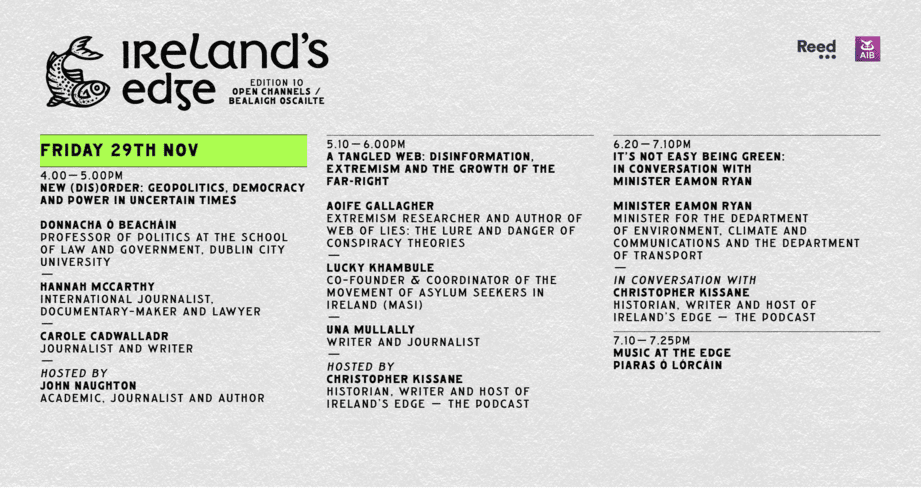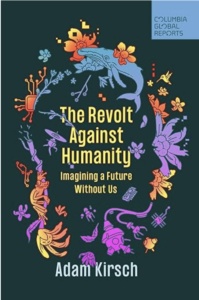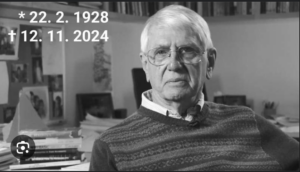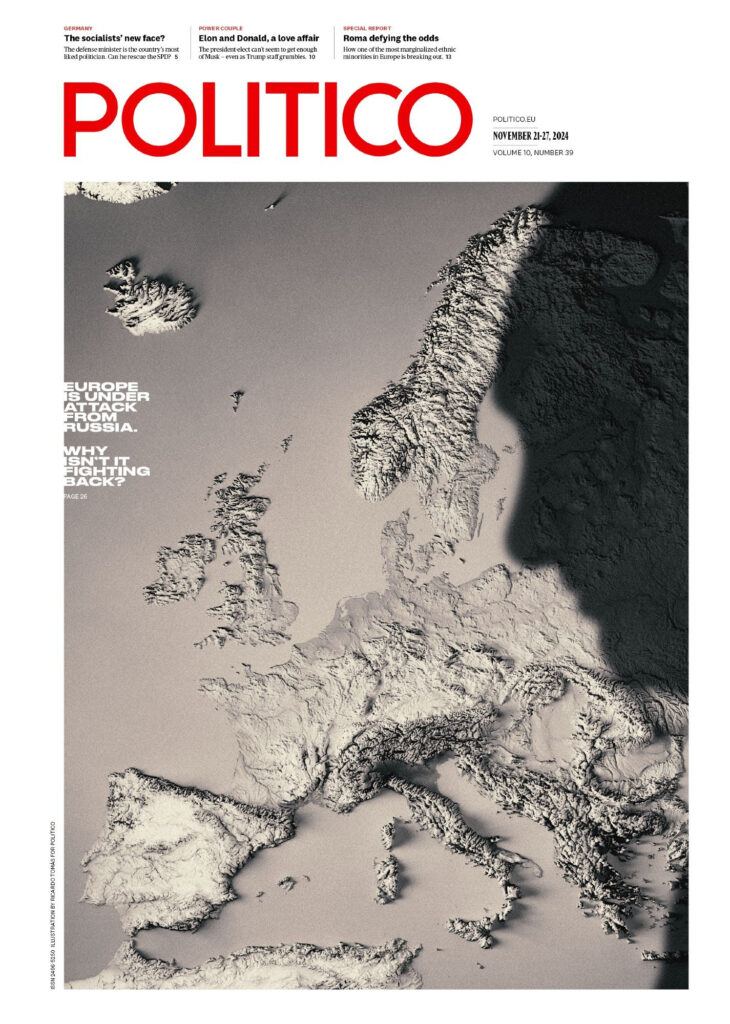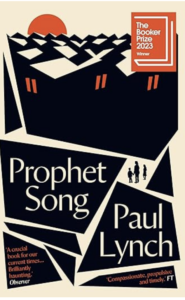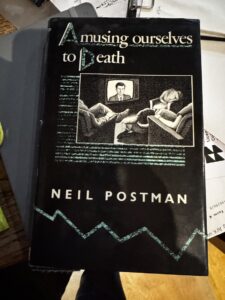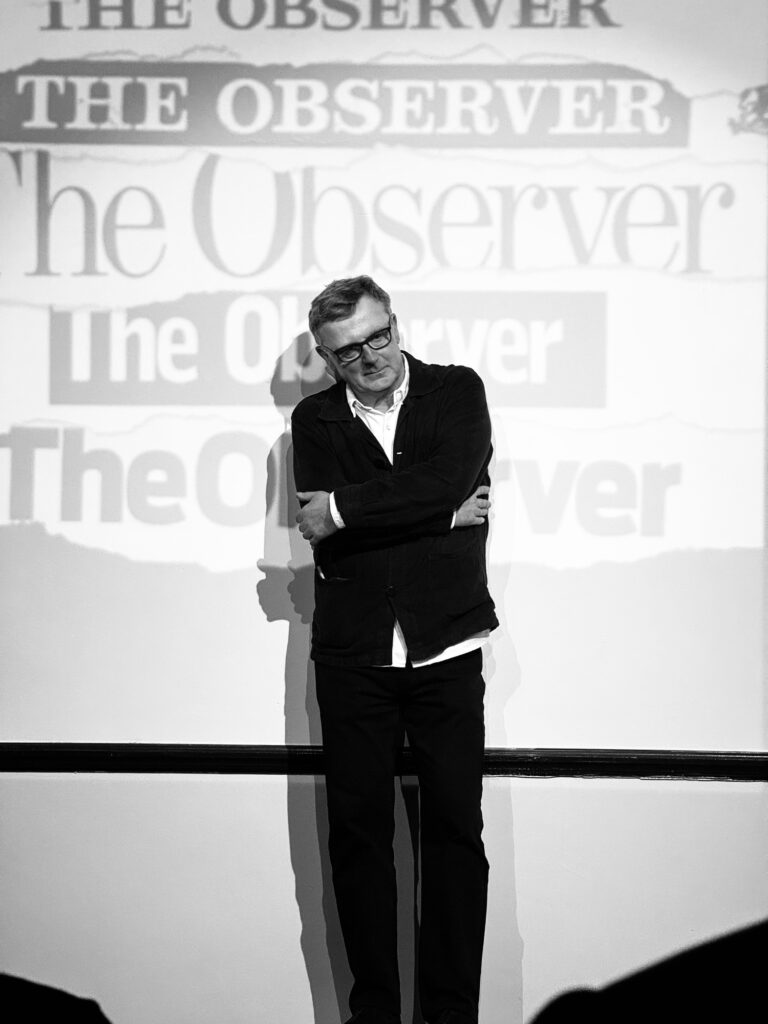Night lights

Walking through Upper River Court in St John’s on Monday night on my way to a lecture by Marietje Schaake I pulled out my iPhone to see how it would handle the lighting. Fairly well is my verdict. But what struck me most was how peaceful the scene was, even though it’s right in the middle of a busy town. Kids who are able to live and study in places like this have the luck of the devil.
Quote of the Day
”Rationality is leverage — a strong man lifts a block, but a clever man invents a pulley. It’s how Socratic nerds defeat Homeric jocks.”
- Zohar Atkins, poet, rabbi and theologian
Musical alternative to the morning’s radio news
Taj Mahal & Ry Cooder | 2:10 Train | Rising Sons
Link
Long Read of the Day
How It Went
John Gruber is one of the Elders of the Web. His Daring Fireball blog is something I read every day because he’s such an acute observer of the tech world, and in particular anything to do with Apple. With the late (and much lamented) Aaron Swartz, he created the Markdown language in which (and many thousands of others) write every bit of text I produce (including this blog).
Last Friday, though, his blog was about something else, and it turned out to be an entrancing and moving essay in which a personal story was interwoven with reflections on Election night and its aftermath.
Here’s how it opens:
My mom died at the end of June this year.
I know, and I’m sorry — that’s a hell of a way to open a piece ostensibly about a depressing, worrisome, frightening election result. But here’s the thing I want to emphasize right up front: my mom’s death was OK. It really was. She was 78, which isn’t that old, but her health had not been great. She was hospitalized for several days in May, just a month prior, after she had collapsed at home, too weak to stand, and for days it wasn’t clear what was wrong. Then some more test results came back and we had the answer. She had ovarian cancer, bad. It had already metastasized. The prognosis was grim: months to live, at best. And those months, toward the end, would inexorably grow ever more painful and profoundly sad.
Her mental acuity had begun to slip in recent years, too. Not a lot, but if you knew her you’d notice. But she faced this prognosis with remarkable dignity, courage, and clarity. She knew the score. It was what it was, and she’d make the best of the time she had left. She was tired but still felt pretty good most days. There were flashes of her younger self, the Mom I remember growing up with. It was wonderful to see those flashes. The bad times were coming, but they laid ahead. On the last Monday night in June she and my dad went out to eat at their favorite restaurant. They had a good meal and a good time. It was a great day. Tuesday morning she played Wordle and reported her score to our family group chat. Then around noon, she just fell over, dead. My dad found her unresponsive, called 911, and they arrived in minutes, but she was gone. No suffering. The whole dreadful grind of battling cancer never came. It’s such a cliché but clichés are often true: given what she faced, it was a blessing she died how and when she did. She never wanted to suffer and she didn’t. I loved her and I miss her.
Like I said, it was all OK, in the end — the way and how and when my mom died.
But my dad…
Do read on. It’s long, but I don’t think you’ll regret it.
My commonplace booklet
As long-time (long-suffering?) readers know, I’ve been a keen photographer since I was a teenager. (Full story of how I became addicted is here, if you’re interested.) For much of that time I’ve used Leica cameras — rangefinder cameras with interchangeable lenses. This year is the 70th anniversary of the company’s ‘M’ range — the bigger cameras with a bayonet mount for the lenses.
These cameras are a prime example of German engineering excellence. They’re outrageously expensive, have terrific lenses, are amazingly strong, solid and heavy. (One of my friends used to say they were made from melted-down WW1 battleships, but he was just jealous because I had one and he didn’t.) But some of the greatest photographers of the 20th century relied on them. (Henri Cartier-Bresson was never seen without one, for example.)

Two Leicas. On the left is a M4-P film model which I bought in 1980; on the right a 2022 M10 Monocrom with a digital black-and-white sensor. Both devices feel the same in use, and accept all the lenses that Leica offer.
But the most remarkable thing about Leica cameras was that they are all ‘backwards-compatible’: the newest lenses will fit every M camera, and so will the oldest. For example, I have a 60-year-old 135mm Elmar lens which fits on the 2022 digital camera body and works perfectly (though it’s not as sharp as newer lenses).
It’s this consistent quality and backwards-compatibility that seemed (to me, anyway) what was quintessentially German about these cameras. And I naively imagined that in that sense they were paradigmatic of the society in which they were made.

But now comes a shocking book by Wolfgang Münchau which suggests that my view of German enterprise may need updating. At any rate he paints a picture of (as an FT review puts it) “an economy, political system, and society dysfunctional to the point of being terminally broken, i.e. kaput. Germany faces a choice, but is unable to summon the political and intellectual resources to make any decisive response”.
I’ll have to get the book to see how Münchau makes his case, but there are some corroborating straws in the wind. In particular, the German car industry seems to be in trouble. VW, the country’s biggest auto manufacturer, recently announced that it was closing some plants and laying off workers. Given how important the car industry to the image of German invincibility, maybe Münchau is reading too much into it. We’ll see.
This Blog is also available as an email three days a week. If you think that might suit you better, why not subscribe? One email on Mondays, Wednesdays and Fridays delivered to your inbox at 6am UK time. It’s free, and you can always unsubscribe if you conclude your inbox is full enough already!

